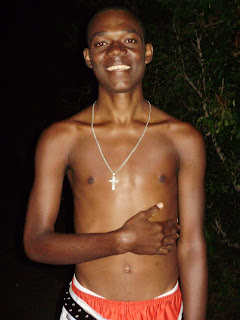We must challenge our Selves because it is each of us who must struggle with our consciousness. We are ultimately responsible for our actions and inactions; and, we are, each, accountable to the Earth, our Ancestors, Creator, our Children and the Unborn.
_gkisedtanamoogk
The world will be balanced when we are balanced.
thrthang tulku
May compassion arise within your heart and may you see all beings as your relatives in this dream of life.
Dhyani ywahoo
Last week our family (Alison Maya Theo and I) found ourselves at the Tatamagouche Centre taking part in the 7th Annual Peace and Friendship Gathering; a gathering of Aboriginal and Non-Aboriginal people committed to truth and reconciliation; a building of right relations with First Relations, Mother Earth and her First People.
An invite was extended to us after sharing with Canadian friends the violence and suffering experienced over the years within our own community in Grenada and the deep wounds violence, poverty, and oppression continue to cause in our family, friends and community.
We came to the gathering recognizing not only our need to understand and recognize more fully the historical context to the violence and oppressive structures that prevail today in the Caribbean and in particular our community; but also our need to witness and experience how other historically and present day oppressed people move through violent pasts into the present and still continue to embrace, respect, and honor the sacredness of life and ceremony. How these same people continue to pledge alliance to Mother Earth; commit to social, environmental, personal and political activism; and recognize the crucial need to build relationships with one another. We heard and felt painful stories from First Nations who gathered to generously teach us and other non native people the way back to sacred ceremony, the way back to relationships with one another and the earth, and the way back to speaking and listening from our hearts. The past four days taught me how little I know of Canada’s Aboriginal people, my own Canadian history, and how much there is to learn from my Grenadian husband, family, friends and community.
I can’t help reflect upon the invisibility of Aboriginal people and culture in my own life while growing up; the racist stereotypes learned and woven into my own limited worldview. How, so many of us were swallowed whole by the dominant imperialist Eurocentric worldview; how I and many like myself were born seeped in ignorance drowning others in our own false sense of entitlement. How, many of us when we do begin to shed the ignorance from our eyes and begin to see the unjust system; and how we have benefited from this system, feel the need to leave our materially rich and privileged lives to seek understanding and repentance by traveling across the seas. Many of us jump into other countries and cultures without first understanding our own history; a Canadian history of colonialism, oppression, and violence that continues to affect our Aboriginal brothers and sisters today as well as other marginalized people of Canada.
Bob Marley wrote, “If you know your history, then you would know where you are coming from, then you wouldn’t have to ask me, who the hell do you think I am.”
These lines speak loudly to me of the responsibility we all hold in understanding our histories, our stories, which I believe inevitably lead us to understanding more fully who we are in this world, why we believe what we believe and how do these believes affect our actions or non actions in the world. As one of the wise and compassionate Elders, gkisedtanamoogk shares, “We must challenge our Selves because it is each of us who must struggle with our consciousness. We are ultimately responsible for our actions and inactions; and, we are, each, accountable to the Earth, our Ancestors, Creator, our Children and the Unborn.” I believe once we tackle the decolonization of our own minds then the decolonization of the systems that perpetuate the killing of our Mother Earth and the division of her people will soon follow.
For four days we sat together wrapped around the sacred fire; watched over by a cathedral of elder oak trees. We moved into life giving forces through sacred ceremonies and spirited council; all of us moving bravely to the beat of our own fears while embraced by love and compassion in reconciling our pasts and recommitting our commitment to healthier relations with the Earth and with One Another. The four days renewed my commitment to the sacred, to ceremony, to new friendships, to understanding my own history and how this history is intimately connected to other’s history, to becoming more balanced in an unbalanced world, and to strengthening my place in the world not through a sense of entitlement but through a sense of responsibility and love.





































